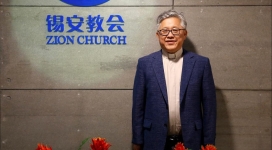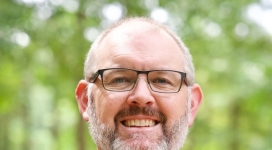A young imprisoned Colombian church worker was abruptly released after spending 130 days in jail, the Presbyterian Church (U.S.A.) reported on Monday. Mauricio Avilez, who was arrested in early June, was freed Oct. 20 after his attorney successfully argued that there was insufficient evidence to incarcerate him. He has since gone into while authorities continue to investigate his case and his attorneys fight to have it dropped.
Since his arrest by an elite arm of the Colombian military, Avilez, 24, has remained in jail while the government investigated whether the accusations leveled against him by a paid informant could be turned into criminal charges.
According to the Presbyterian New Service, an informant reportedly linked Avilez to the bombing of a Barranquilla department store in which one shopper died and others were seriously injured, leading to allegations against Avilez ranging from terrorism and murder to guerrilla activity.
Rev. Milton Mejia, executive director of the Presbyterian Church of Colombia (PCC) told the Presbyterian News Service that the church is celebrating Avilez's release, enjoying the moment. But they know the troubles not yet over.
"On the one hand, it shows us that everything they said about Mauricio was a lie," Mejia said. "On the other hand, we know that we have to find ways to protect ourselves, that they can launch an investigation against us at any time.”
Since Avilez’s arrest, the PCC has learned that its Barranquilla office is apparently under video surveillance and that its ministry to displaced people is under government scrutiny. Avilez's interrogators - and their backers - call human rights work subversion and say those who do it are simply guerrillas in disguise. Mejia suspects that the goal is to scare the church away from human rights work.
The Presbyterian News Service reports that both the Colombian Embassy to the United States in Washington, D.C., and the office of Vice President Francisco Santos have refused interviews about the Avilez case and about the pressure faced by the church.
Meanwhile, Avilez remains in hiding as his life is in jeopardy. “In or out of jail Avilez’s life is in jeopardy,” the Presbyterian News Service stated. “While he was in jail, he was a potential victim to violence inside Colombia’s political system. Now, identified as a subversive, he is hunted by the armed groups who exact their own kind of justice regardless of court verdicts.”
"I am not totally free," Avilez said in a letter "from somewhere" dated Oct. 21. "I feel very vulnerable, very unprotected. I'm worried about the future. I'm worried about my family.”
One of Avilez's cellmates, Alfredo Correa De Andreis - a university professor and human rights advocate was gunned down in the street by a gunman riding on the back of a motorcycle shortly after being released on appeal. His bodyguard also died in the assassination attack.
As a result, Avilez has remained in hiding, writing letters and poetry, talking with his lawyers, and finding ways to let his family know that he is well.
His family also had to go into hiding themselves days to avoid the armed groups who want him dead. Cars with darkened windows have reportedly passed by the house, his brother reportedly received threatening calls, and a motorcyclist followed Sister Crisanta Cordero—a nun who visited Avilez in prison almost daily—in her car. After months of surveillance and harassment, Avilez's mother is having heart palpitations.
"I'm very worried about my family," Avilez said. But the difficult ordeal has only solidified his resolve to continue working for the human rights of others, the Presbyterian News Service reports.
Since 1997, Avilez has worked with the Presbyterian Church of Colombia in its human rights ministries. For the last two years he directed a team of volunteer law students who have helped Colombia's internal refugees file for government assistance and document human rights abuses by the armed paramilitary, guerrilla or government forces. Such agencies have forced refugees off their land and into shantytowns on the fringes of Colombia's already economically troubled cities.







